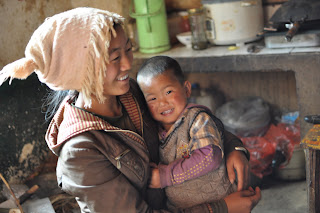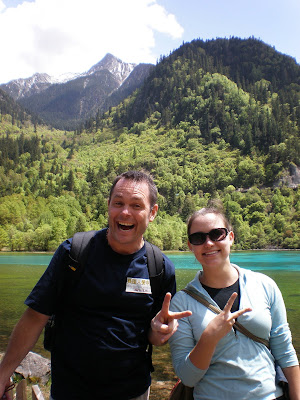This past month I had the pleasure of accompanying a team from MOST M-nistries to Sichuan Province for an eyeglass service trip. Sichuan Province is north of Yunnan and its capital, Chengdu, holds the United States Consulate.
The team arrived and we headed straight out to Nanba, a town that was devastated in 2008 by an earthquake. The entire town needed to be rebuilt and when we arrived, three years later, we could tell they were finally getting back on their feet. During our seven days of service, we visited 8 schools, saw 1,725 patients and gave out 1,650 glasses. This team was so bl-ssed to have such experienced members who had been on several eyeglass teams before, our clinic days went as smoothly as could be. Many of the students who couldn’t communicate with us verbally just gave us hugs instead.

Students filed into the registration area, talked to the nurse and headed to the testing station. Here our volunteers would test their near and far-sidedness just like at the eye doctor. They would prescribe them an accurate prescription and send them to the dispensing station. Here we would test several pairs of eyeglasses on them and ask which was the clearest. I was located at this station to help with translation and and do my best to give them the best pair of glasses. Next, we sent them to the fitting station where our volunteers would try their best to adjust the size and nose pieces of the glasses to fit the students face. This was at times hard, as most of our glasses fit an average American’s face and nose, but with a smaller Chinese face and flatter nose, our technicians had their hands full. Finally the students proudly took their new glasses to the cleaning station and picked out a case.





Overall, the trip was a great success. Many students who could not see the blackboard can now do so without squinting. Many hugs were given and small relationships were built. With the language barrier, sometimes it can be hard to build relationships in such a short amount of time, but these volunteers showed their love in a big way. They showed their love in simple actions just as He did. We don’t know who was reached or whose lives were changed, it is in His hands now, and that we can put our faith in!

• • •
Next week, six interns from Concordia International School Shanghai come to Kunming to help CWEF with a few projects. We will head out to a project site where CWEF completed a water project and evaluate how the project has affected the village. Then we will go to a new village and evaluate if it is a place where we can do a water project in the future. Please send us your pr-yers for safety and good health.
• • •
CWEF is still looking for a new Service Coordinator to fill my role this fall. If you are interested or know someone who might be, email me at edurfey@gmail.com
• • •
Thank you to all my supporters from around the globe. I wouldn’t be able to be here without your gifts and I truly appreciate the generosity. I am truly bl-ssed.





















































